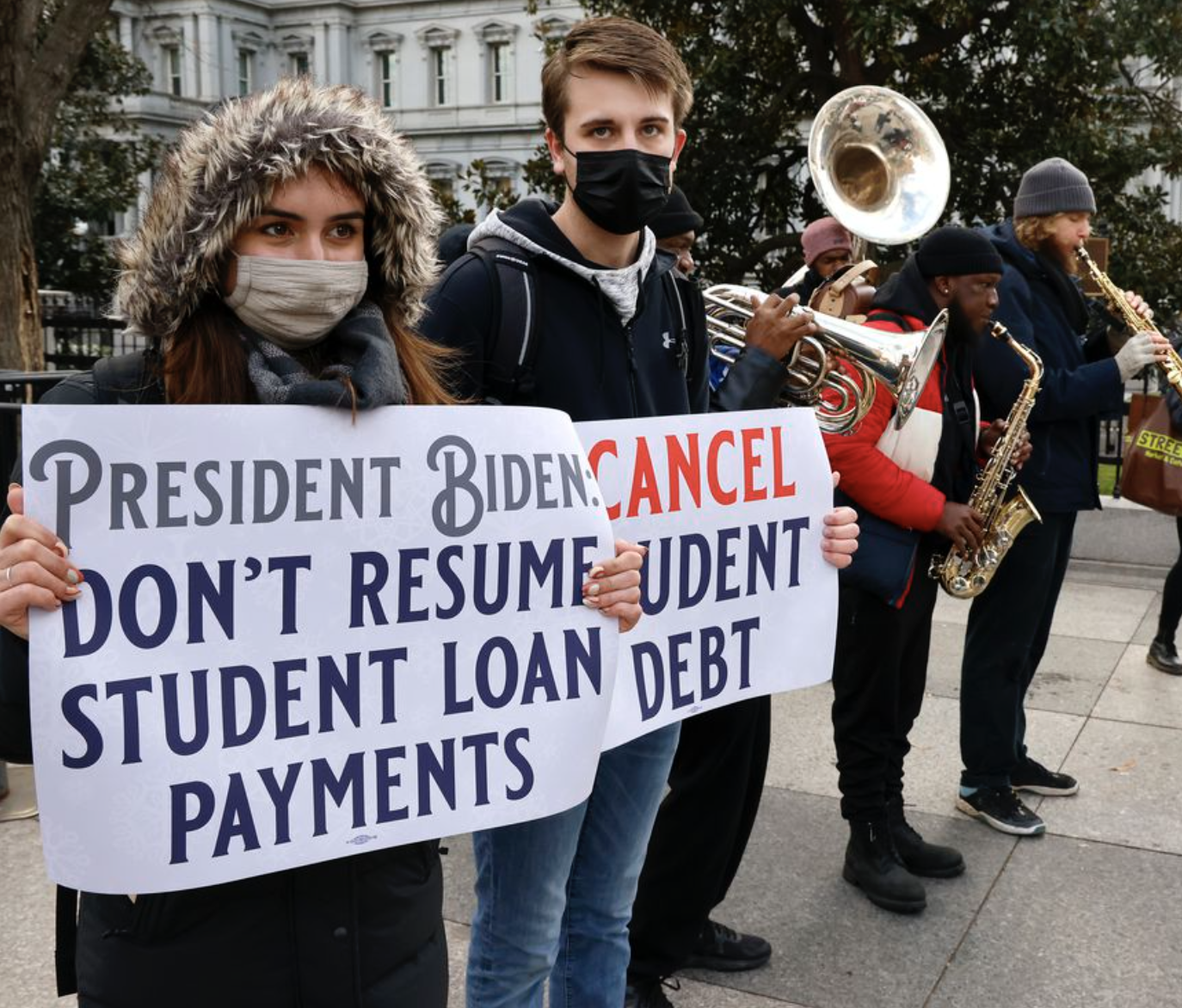By: Charles C. W. Cooke – nationalreview.com – April 21, 2022
During her appearance on the Pod Save America podcast last week, White House press secretary Jen Psaki suggested that before August 31 of this year, the Biden administration intends to make “a decision . . . about canceling student debt.”
Psaki’s asseveration was thrown in casually — as an aside, almost. But there is nothing incidental about this idea. On the contrary: Were the White House to follow through with it, it would represent one of the greatest political mistakes in modern American history. It would enrage most of the country, further damage our separation of powers, help to entrench our two-tier approach to education, create an extraordinary moral hazard, considerably increase the national debt, and exacerbate the inflationary pressures that are already destroying Joe Biden’s presidency. One could spend one’s lifetime mining for destructive policies and never come across a jewel such as this. There is no “decision” to make. The answer should be “no,” followed by a swift exorcism.
Proponents talk of “canceling” student debt, as if the debt would magically vanish at the stroke of President Biden’s pen. But the debt cannot just vanish, because it has already been issued and it has already been spent. When advocates suggest that the debt should be “canceled,” what they mean is that responsibility for paying it should be transferred — at the point of a gun — from the people who borrowed and spent the money to people who did not. Those who owe federal student debt owe it because they chose first to borrow it, and then to spend it on a service that they duly received. Those who do not owe federal student debt do not owe it because they did not choose to borrow it, they did not spend it, and they received no services in exchange for it. To use the word “cancellation” in this context is no different from using the word “cancellation” in the context of my mortgage. A few years ago, I borrowed some money to buy a house, which I have since owned and lived in. That debt cannot disappear; it can only be pushed onto someone else — be that my mortgage company, other mortgage payers, or taxpayers in general. If that were to happen while I remained under my roof, it would be a scandal.
At present, college graduates have a 2 percent unemployment rate, while those with “some college” education but no degree are at 3 percent. Were the Treasury to force taxpayers to pick up the tabs of the former group midstream, it would be engaged in a grotesque redistribution of wealth from the poor and the middle class to the well-off and the connected, built atop the outrageous (and false) presumption that there is something intrinsically worthwhile about a person’s going to college. You will have noticed, I assume, that nobody is running around America demanding that the federal government pay off the business loans that were taken out by the roofer, or the Ford F-150 that is used by the plumber, or the capital-investment debt incurred by the owner of the startup. Only college students qualify, because, inexplicably, only they are presumed to be useful and deserving.
At some level, those who are insisting that others must pay their debts are able to grasp that they are demanding an entirely unwarranted handout, and, as a result, they often feel the need to cloak their request in macroeconomics. “If I didn’t have to pay my loans, then I’d have more money to spend,” they say. “And if I had more money to spend, there’d be more demand, which is good for the economy.” Leaving aside for a moment that this proposition is true of literally anydebt forgiveness — I would have more money if other people paid off my car, or my house, or my cell-phone bill — the idea that significantly increasing demand should be considered a net positive in this economy is beyond surreal. Inflation is currently pushing 10 percent. The last thing we need to do is hand out tens of thousands of dollars to the already well-off in order to stimulate demand. That President Biden is even considering doing so — hell, that he has even extended the Covid-related moratorium on loan payments for as long as he has — confirms that he still hasn’t grasped how bad things have become, nor how bad they could yet get.
If he does decide to “cancel” federal student debt, he’ll find out too late.
To see this article and subscribe to others like it, choose to read more.
Source: Student-Debt ‘Cancellation’ Would Be a Moral, Economic, and Political Catastrophe | National Review
 Listen Online
Listen Online Watch Online
Watch Online Find a Station in Your Area
Find a Station in Your Area








 Listen Now
Listen Now Watch Online
Watch Online
